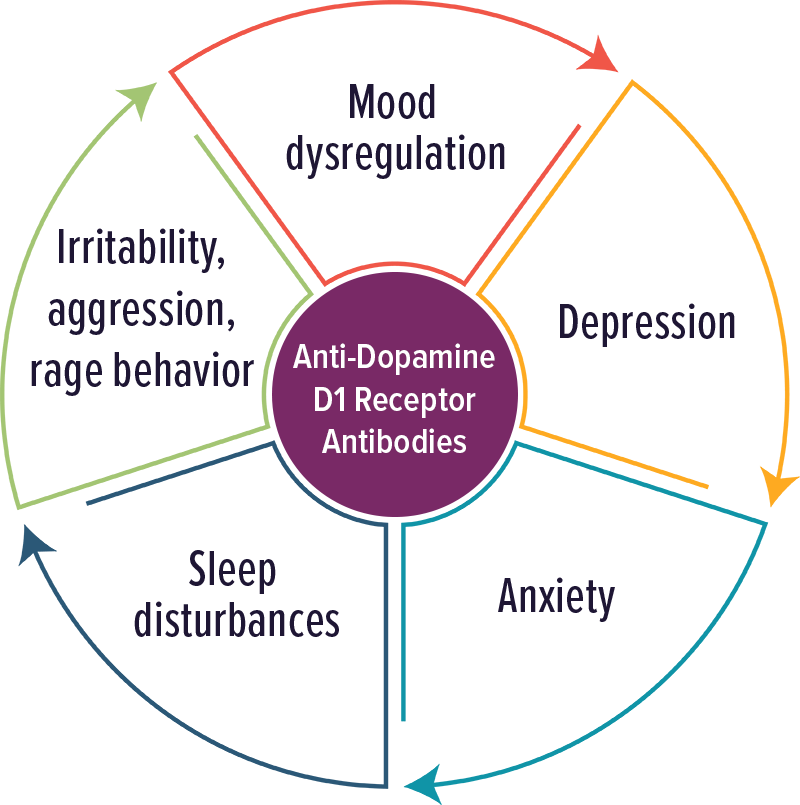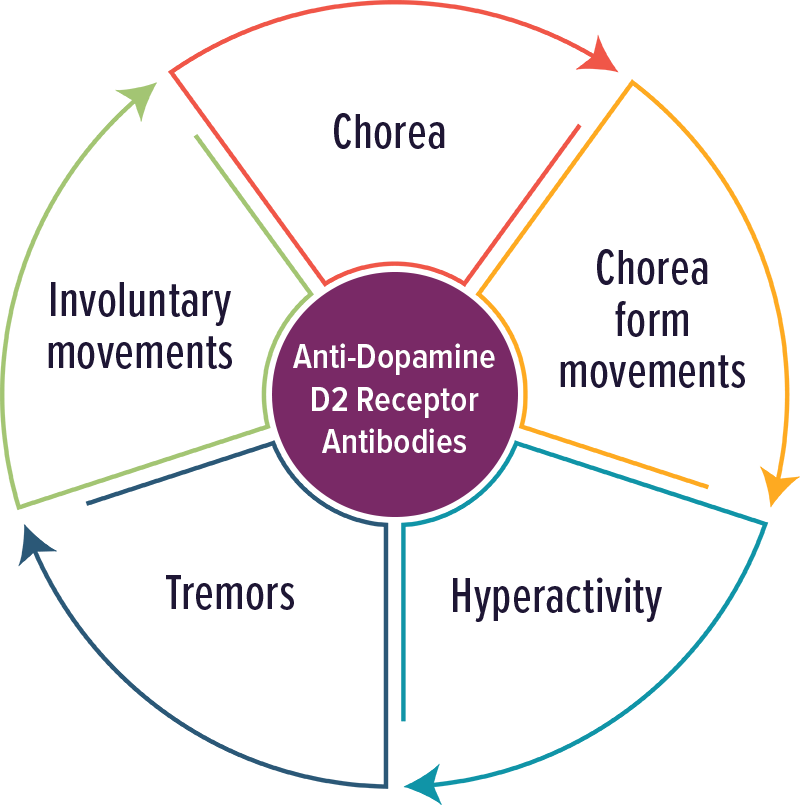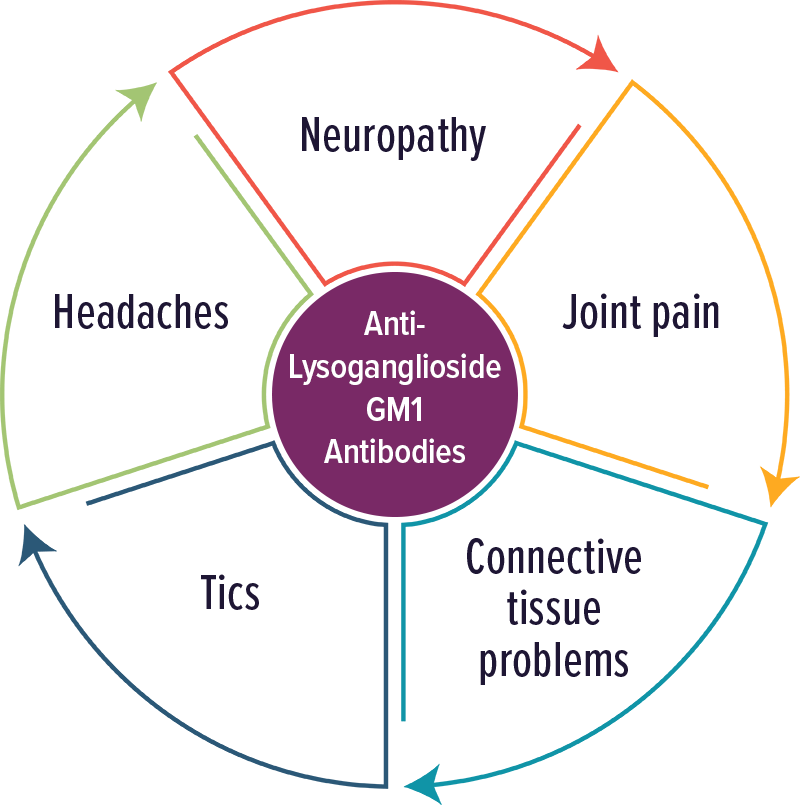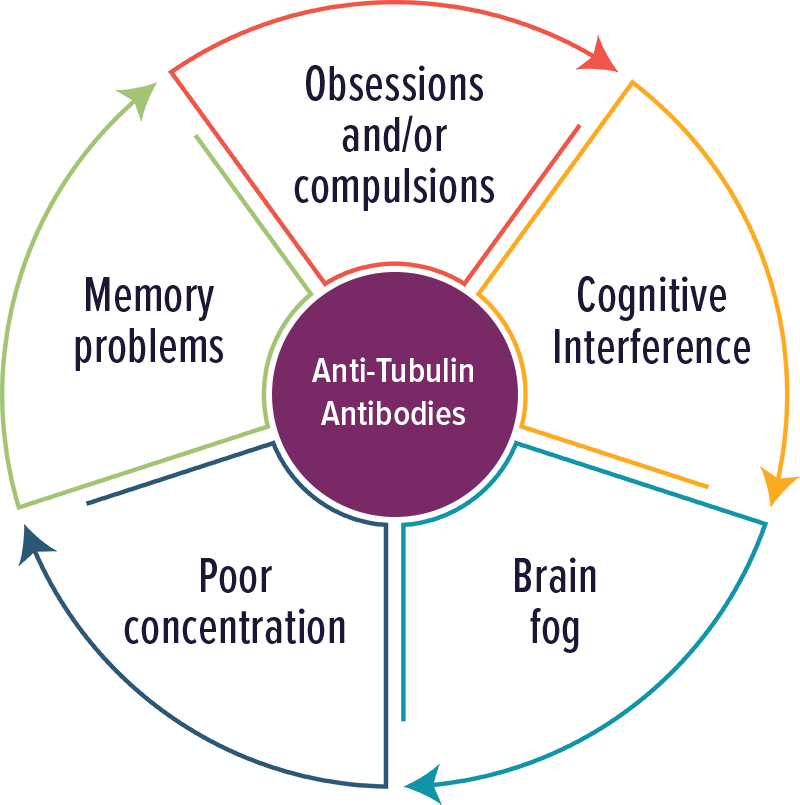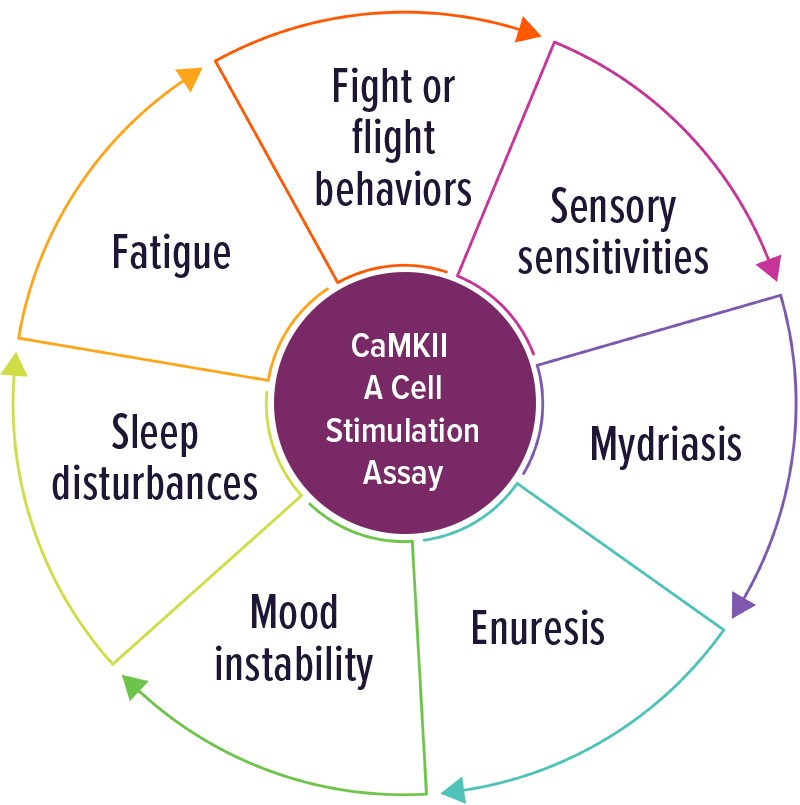When symptoms persist

Could an infection be causing your symptoms?
In some individuals, common infections can trigger an autoimmune reaction—in which the immune system mistakenly attacks a region of the brain. This can lead to the onset of neurological and psychiatric symptoms such as tics, obsessive-compulsive behaviors, anxiety, depression, mood swings, difficulty concentrating, or changes in personality.
Unfortunately, the autoimmune cause behind these symptoms is often missed, and individuals are initially diagnosed with a primary mental health or neurologic condition – when, they actually have a treatable immune dysfunction.
Root cause testing.
Treat the problem. Not just the symptoms.
The Autoimmune Brain Panel™ includes a series of five high-complexity blood tests that assists clinicians in determining whether a patient’s neurologic and/or psychiatric symptoms may be due to a treatable autoimmune dysfunction, possibly triggered by an infection(s).
The Panel measures the levels of specific antibodies including Dopamine D1 and D2, Lysoganglioside and Tubulin and their ability to trigger neuropsychiatric symptoms.
An elevated level indicates that symptoms may be due to an infection-driven, autoimmune process.
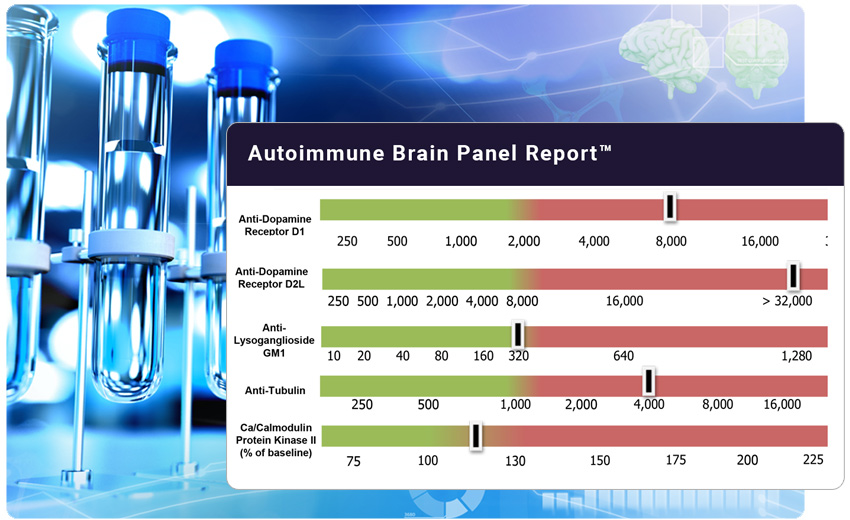
Dr. Tania Dempsey talks about which patients might benefit from testing and how the Panel can provide valuable insights for guiding treatment.
(Note: The Autoimmune Brain Panel™ is known formerly as the Cunningham Panel™)

- Multiple neurologic and/or psychiatric symptoms
- Sudden or dramatic behavior changes
- Tics, OCD, anxiety, depression, or mood swings
- Brain fog, fatigue, or cognitive issues
- Seizures without a known cause
- A known or suspected infection (i.e., strep, Mycoplasma, EBV, Lyme)
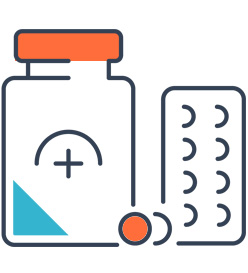
- They didn’t work,
- They made symptoms worse, or
- You feel like they’re only addressing the surface—not the root cause


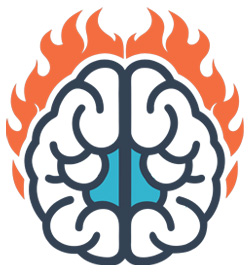


- Treatment direction may shift to include immunomodulatory therapies (i.e., antibiotics, anti-inflammatories, steroids, IVIG, plasmapheresis)
Grace’s personality changed almost overnight. She developed OCD, anxiety, mood swings and was prone to uncontrollable rages. The Autoimmune Brain Panel™ uncovered the reason—an infection-driven autoimmune dysfunction.
(Note: The Autoimmune Brain Panel™ is known formerly as the Cunningham Panel™)
Dopamine D1 Receptor Antibodies
Individuals with elevated levels of autoantibodies against Dopamine D1 receptor typically experienced psychiatric symptoms, including psychosis. Other symptoms included: mood dysregulation, anxiety, depression, sleep disturbances, irritability, aggression and rage behavior.
Dopamine D2 Receptor Antibodies
Individuals with elevated levels of autoantibodies against Dopamine D2 receptor typically experienced movement disorders and impulsivity. Other symptoms included: chorea, chorea form movements, hyperactivity, tremors and involuntary movements.
Lysoganglioside GM1 Antibodies
Individuals with elevated levels of autoantibodies against Lysoganglioside GM1 typically experienced neuropathic symptoms, including tics. Other symptoms included: neuropathy, joint pain, connective tissue problems, tics and headaches.
Tubulin Antibodies
Individuals with elevated levels of autoantibodies against Tubulin typically experienced cognitive complaints, OCD and brain fog. Other symptoms included: poor concentration and memory problems.
CaMKII – A Cell Stimulation Assay
Individuals with elevated CaMKII levels were often positive with involuntary movements and any symptom of adrenergic activation. Other symptoms included: fight or flight behaviors, sensory abnormalities, fatigue, sleep disturbance, mood instability, enuresis and mydriasis.
References
- Moleculera Biosciences Clinical Laboratory Patient Population Analysis.
Dr. Craig Shimasaki reviews with case of a 16-year-old girl with severe OCD, tics, cognitive difficulties and mood swings whose symptoms resolved after proper diagnosis and treatment.
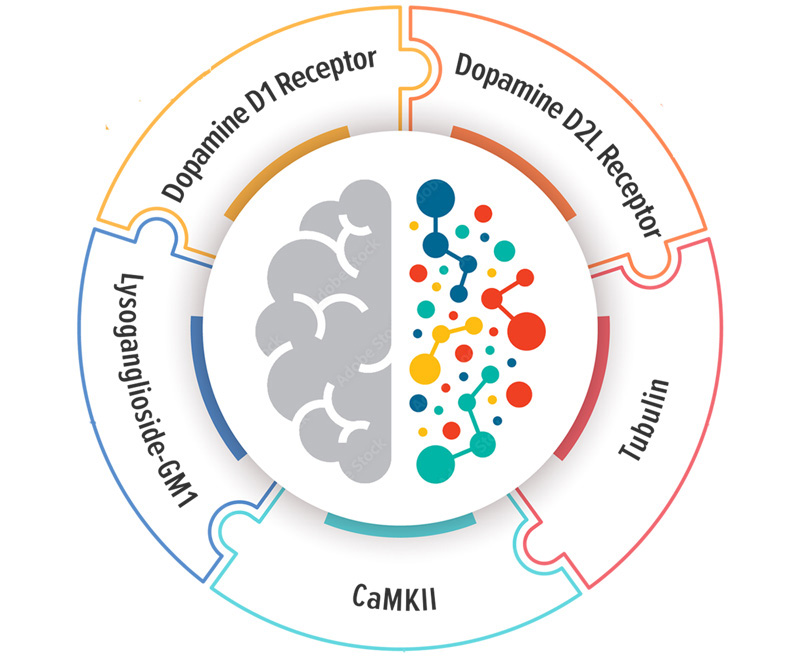
Autoimmune Brain Panel™
Backed by science. Used worldwide.
The Autoimmune Brain Panel™ is backed by more than two decades of research. Developed by scientists at the University of Oklahoma in collaboration with the National Institute of Mental Health, it is now used by more than 2,900 clinicians around the world.
For patients who have been chronically ill and searching for answers, the Autoimmune Brain Panel™ is offering new hope — transforming care, guiding treatment and making recovery possible.

